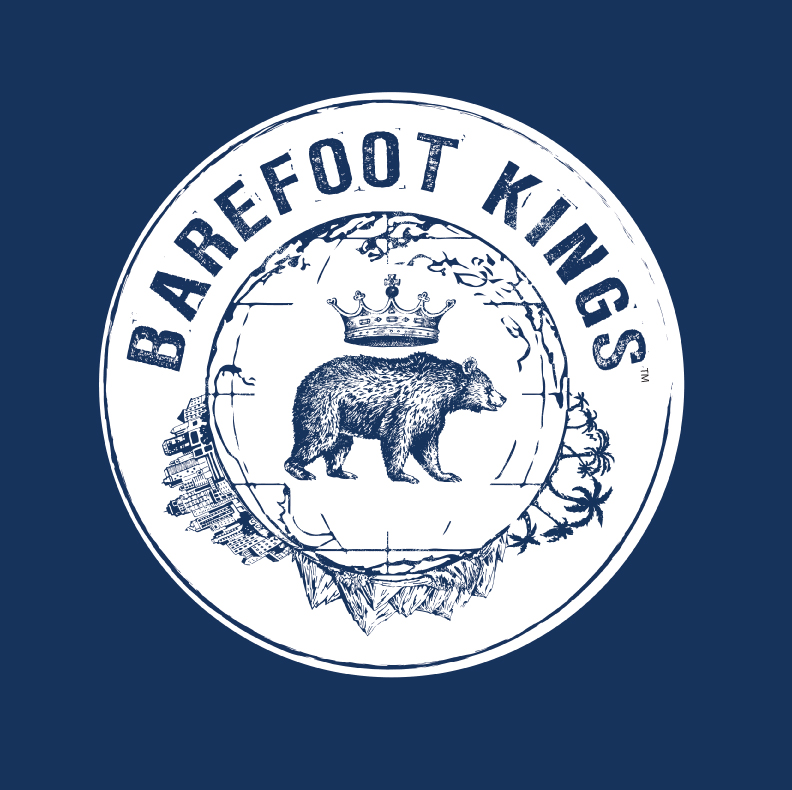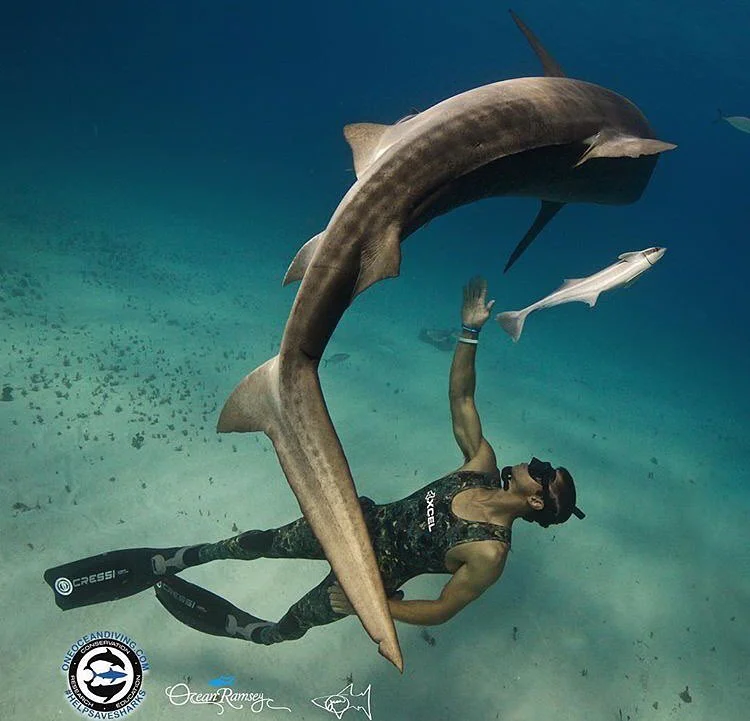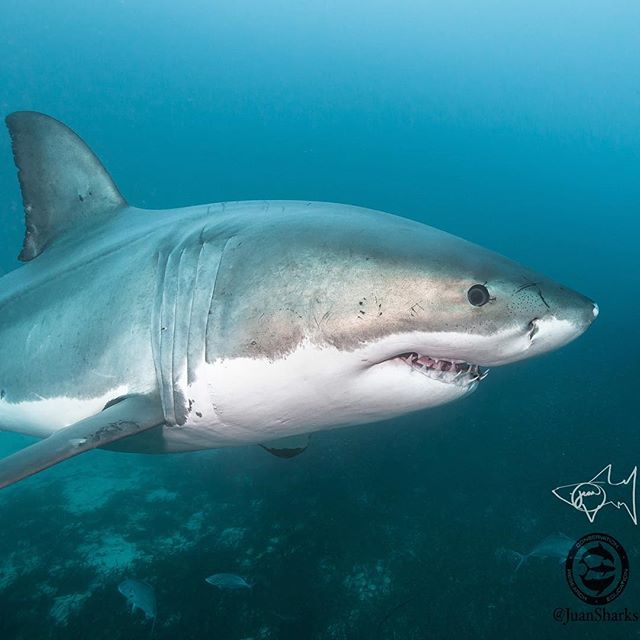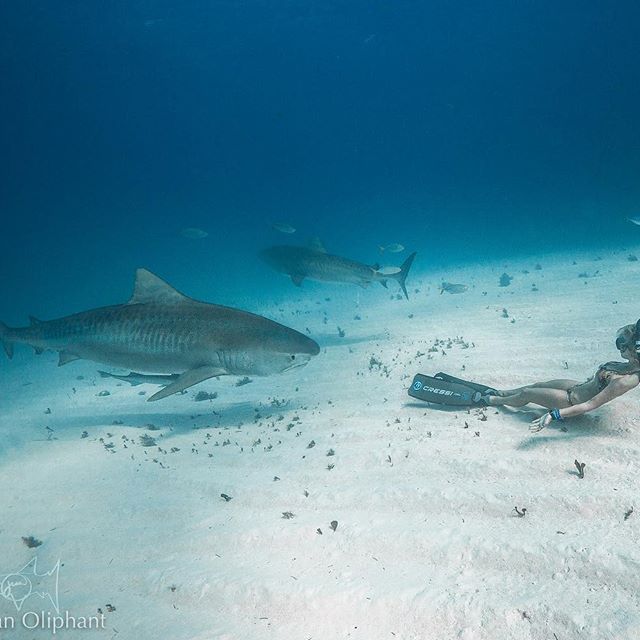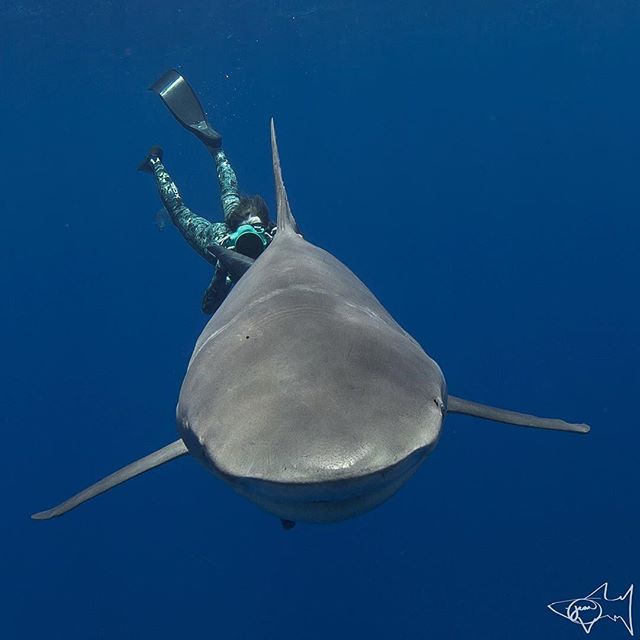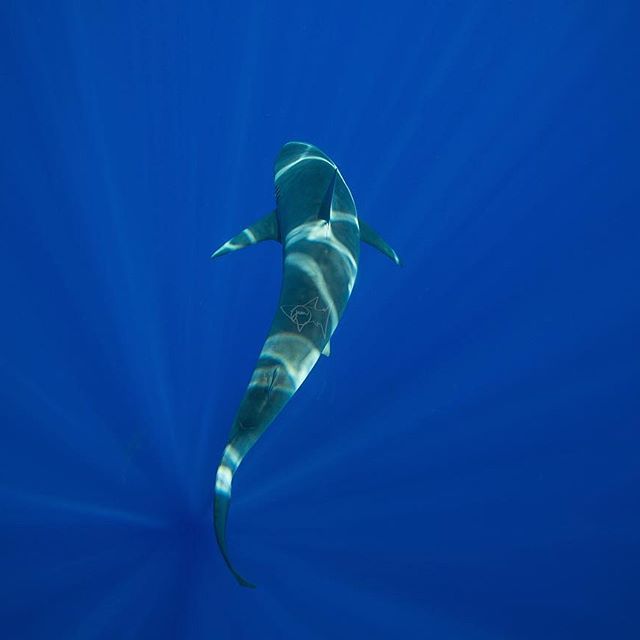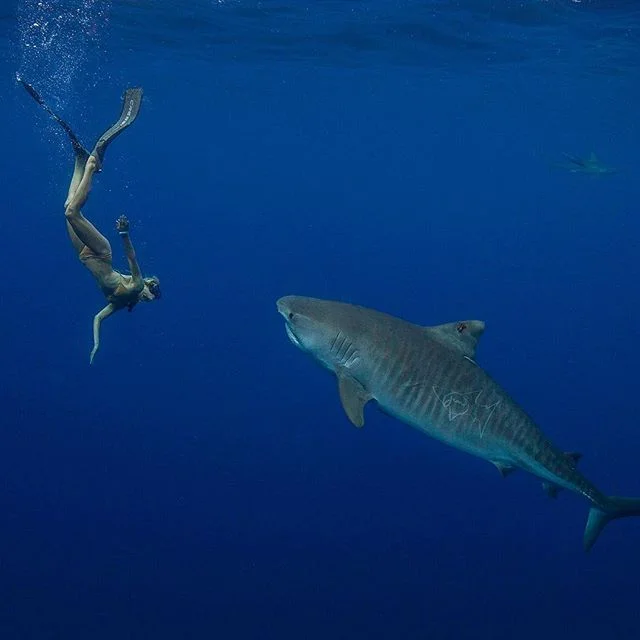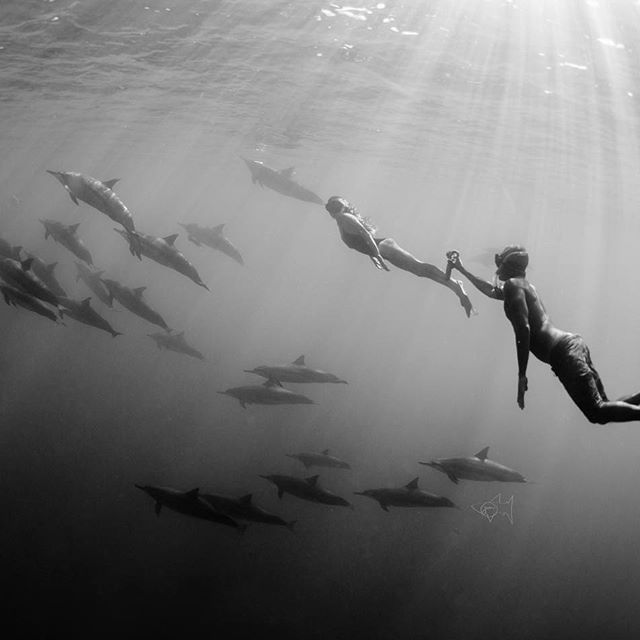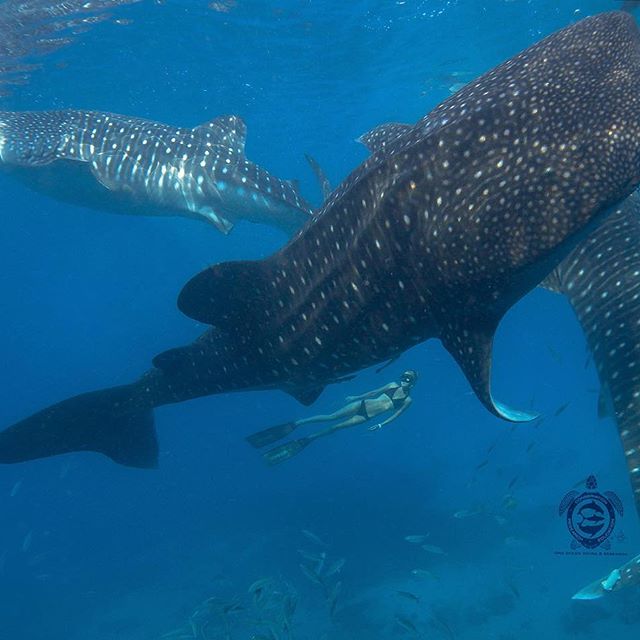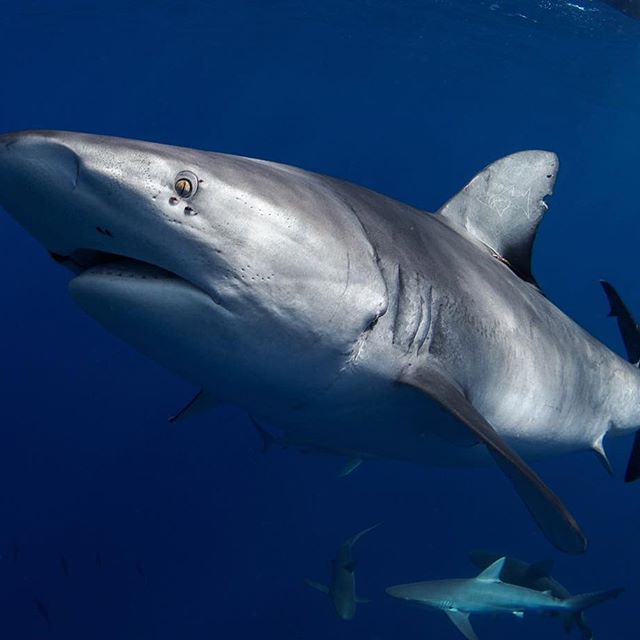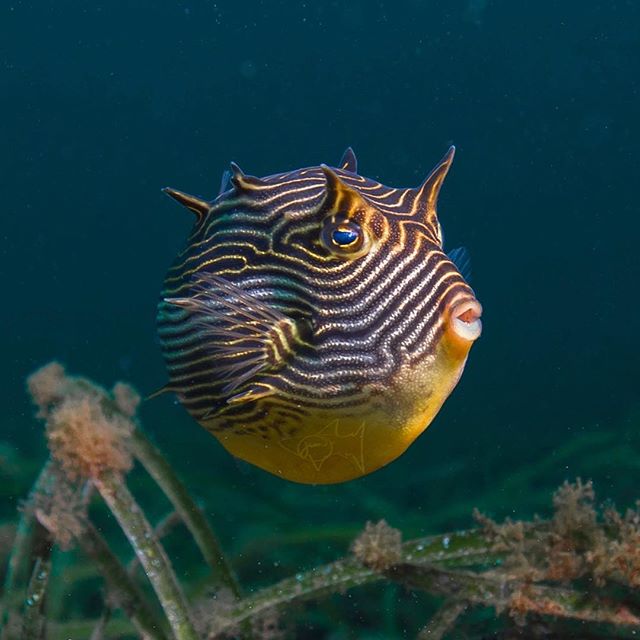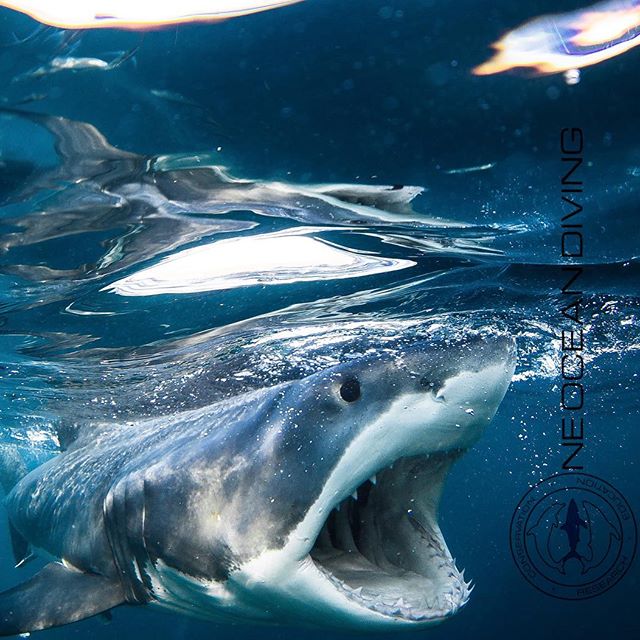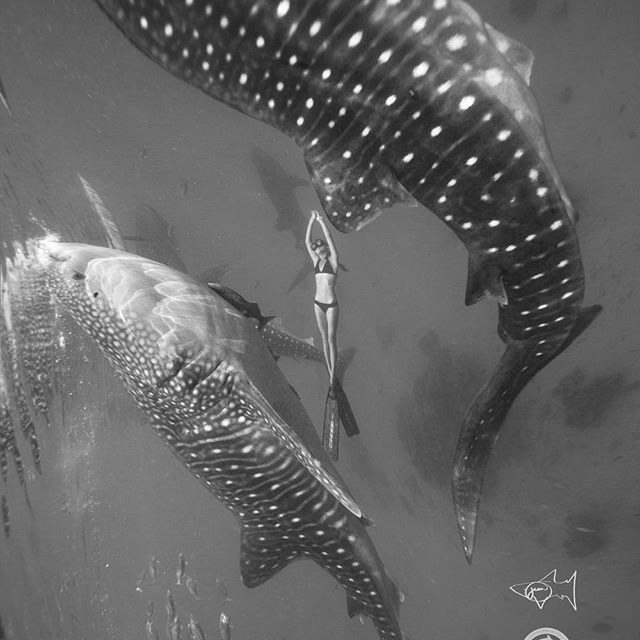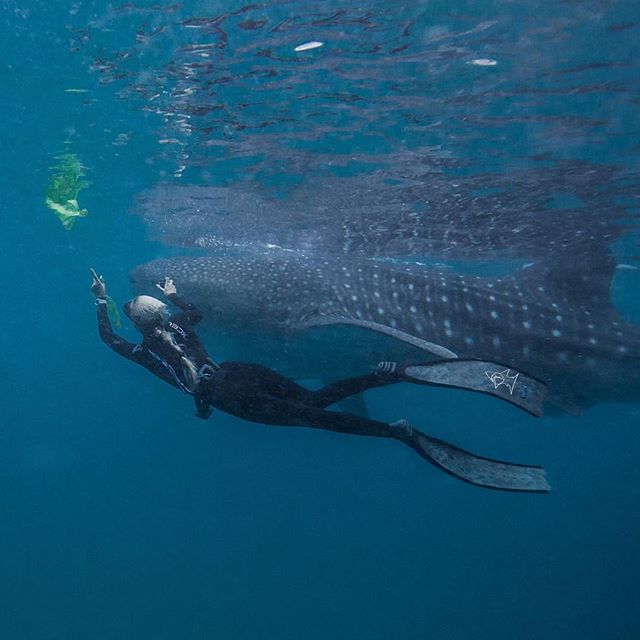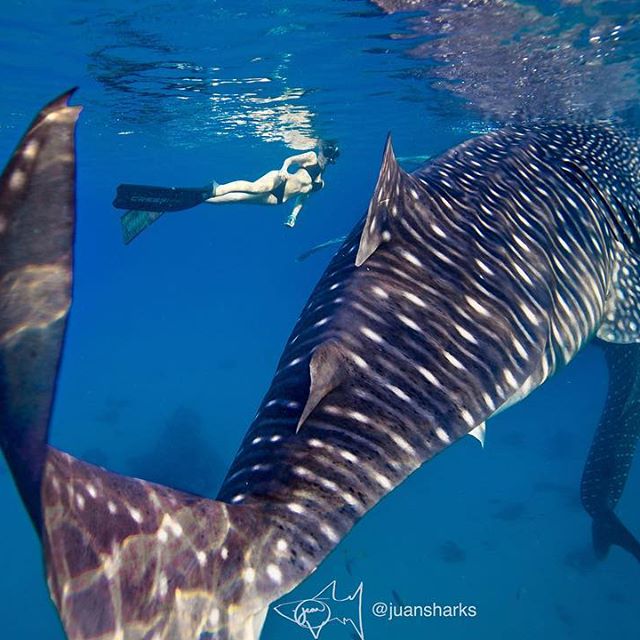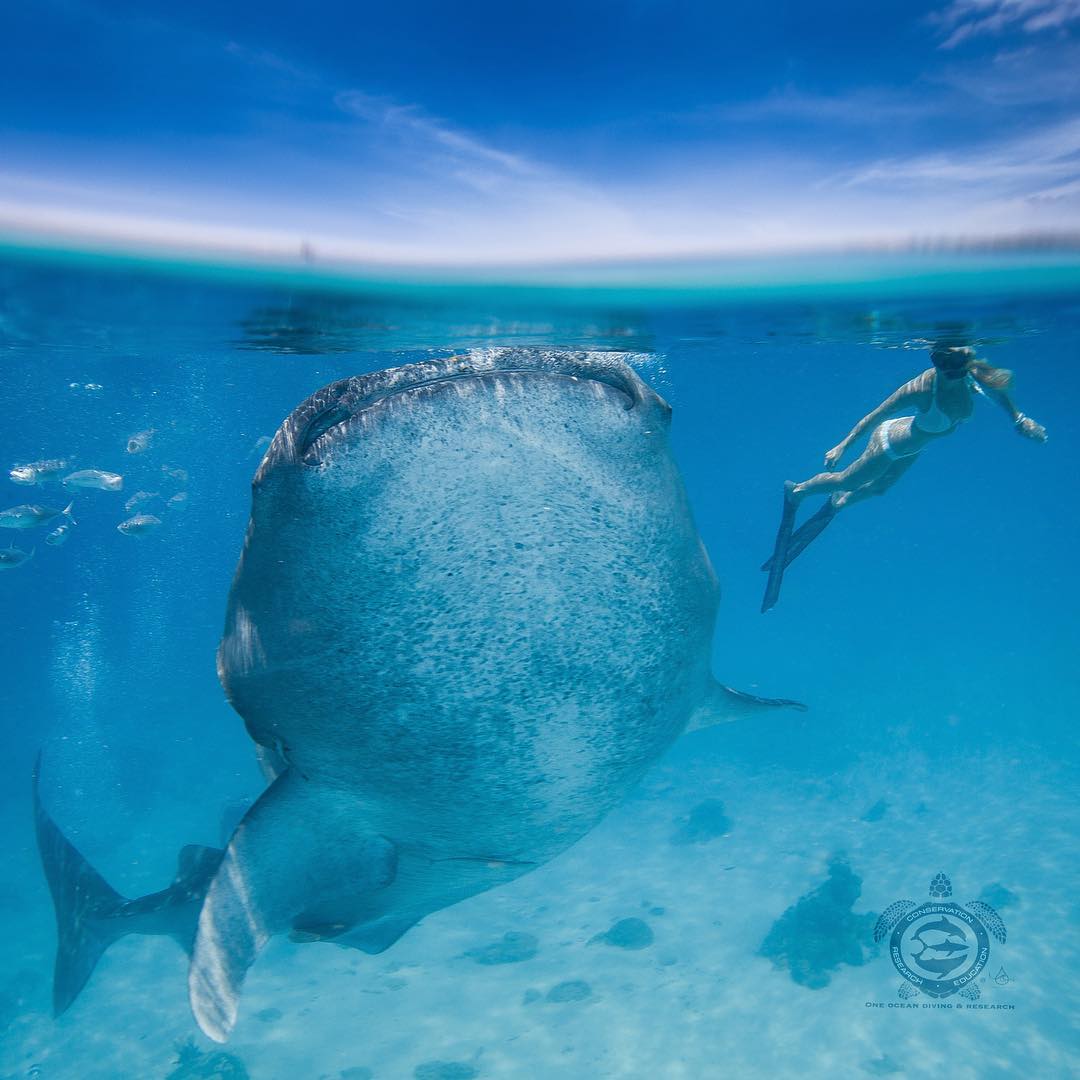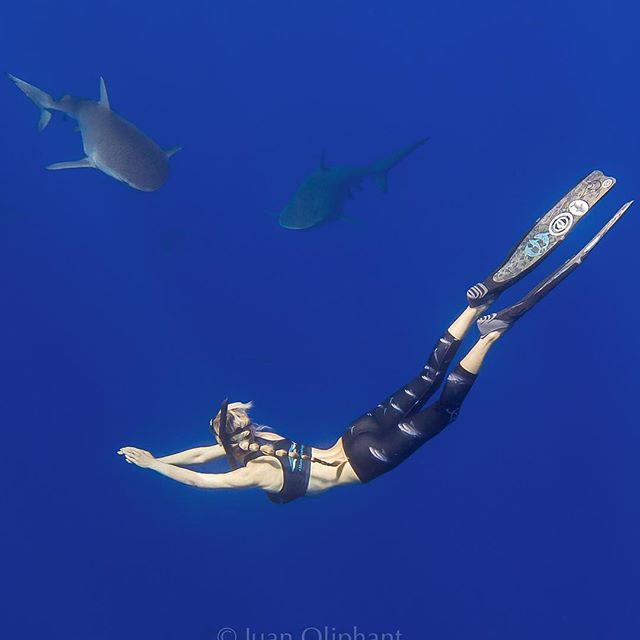Juan Oliphant is co-owner of One Ocean Diving and co-founder of Water Inspired Conservation Group, a marine and shark conservationist, and award-winning professional photographer. Juan's photography of marine life can be found internationally in a number of media sources, while his awareness and conservation efforts stretch everywhere from Hawaii, to the Bahamas, to the Galapagos Islands just to name a few. Juan's conservation efforts and photography, along with that of One Ocean Diving and Ocean Ramsey, have helped raise invaluable awareness about the plight against sharks and their importance to the ecosystem. He is tireless in his pursuit of conservation for sharks, and through his mesmerizing photography of the animals routinely demonized in the media, has helped reached hundreds of thousands of people across the globe. We are thrilled to speak with Juan and to hear about his mission to help save sharks, and ultimately, the maritime ecosystem.
To learn more and get involved in Juan's conservation efforts - click here: http://www.oneoceandiving.com/ and http://www.waterinspired.org/
Q: How did you get interested in ocean and shark conservation?
Juan: It was 2000, and I jumped on board a boat to the Galapagos and I got to see my first real natural congregation of sharks. I also, at the same time, learned about the plight of the animals and the protection. The trip was laying a foundation for the filming of Shark Water. I don't know if you've seen that documentary, but that's a great documentary. Anyway, that's why I kind of fell in love with sharks and got to see how much they need our help and protection.
Shortly thereafter, getting off the boat, I got off at the Bahamas probably about six months later and ended up doing a dive with Stuart Cove's in the Bahamas. I got to see sharks in a natural congregation in the Galapagos, and how they really are, and then getting to dive with them in almost a pet-like environment, they're like puppy dogs almost.
Up to that point, I had experience with sharks surfing on the North Shore, kind of experiencing what we are right now, where you have cases of mistaken identity bites. I grew up with that in '91,'92, as a kid. We had that same kind of interaction, and the fear that came along with it really warped my perception of sharks. It was kind of like me turning full circle when I actually got to dive and see them for how they really are.
Can you tell me a little bit about Water Inspired and how it got started, and kind of your goals for the effort?
Water Inspired is a non-profit that was founded by mainly Ocean and I kind of jumped on board with it. It was all about changing perceptions of sharks and highlighting the need for conservation of sharks, through mostly visual imaging but now it's more of an outreach program where we're going to schools and trying to teach the younger generation more about the truths and the facts about sharks rather than what they see in the media on Shark Week. Also, donating to different organizations or programs that are helping to support shark conservation.
It's really impressive what you all have done. Are you still pretty active in your two other non-profits, Save the Turtles and Adopt-a-Beach Hawaii?
Yeah. It's a company that is not directly related to us as of yet, but we're looking to adopt it into Water Inspired. We have been doing our own recent beach cleanups as well, through Water Inspired, where we dive and get all the fishing line and stuff off. Yeah, Adopt-a-Beach and Save the Turtles have, I guess you could say, a partnership right now.
Where are some places around the world that your conservation efforts have taken you to, and what are some of your favorites?
The Galapagos is definitely one of them, although we do go to Guadalupe Island for the great whites. I try to get there once a year, but Ocean Ramsey, she's the marine biologist behind Water Inspired and One Ocean Diving, she goes there every year. If I'm lucky enough to go and help document her research, then so be it. Yeah, that's definitely a highlighted spot for me. Other places would be like Fiji... to help raise the awareness that they have down there with the sharks, and the conservation efforts that they're doing.
Also, Playa del Carmen, I've been there, it's in Mexico as well but on the Caribbean side. I helped them out with the tagging of bull sharks and again trying to promote shark conservation there, another project we did in the Caribbean. Then Western Australia was definitely to me the most meaningful trip, because we were actually able to save ... instead of just documenting research, we were able to save a baby tiger, her life... Basically, by reviving her back to life. Yeah, that was a super meaningful trip… my most meaningful trip. Although maybe it wasn't the happiest trip I've ever been on, as far as having to see all these beautiful tigers being killed, but to actually save one makes it meaningful. Yeah, that's the most meaningful trip.
It's hard to pick. They're all really good.... The Bahamas has a great success story there, as far as showing the value of a live shark versus a dead shark, and how beneficial that could be to the economy, versus killing sharks for shark fin soup and just taking their fins and wasting a resource. In the Bahamas it's illegal to kill a shark. It's a $10,000 fine. That's the way it should be throughout the world, just with the absence of sharks as is and how important they are to the ecosystem.
Have there been any other moments with the sharks that really stick out to you out of the hundreds of times that you've dived with sharks?
There's a few... There's a tiger shark that is named Roxy that we've seen a bunch... There was a net that was wrapped up around her. I've seen her for years, and I was able to get the net off of her one side. That really made me feel like I made a difference in that animal's life. That was out here in Hawaii. Also, too, there's another shark... that Clark Little has been photographing with me for the past couple of years. I originally saw that shark back in 2000... I kind of grew up with that shark, and just to see her growth and I guess just success in life, not being killed, is huge to me, because there's not very many that I've seen for that amount of time.
Then also too, the GoPro piece that we did with Bella, with Ocean, to see the interactions that Ocean had with that animal, how willingly and close that she was able to let me come to her as well, as a photographer. That was one of the best great white shark dives I've done.
Obviously, the photos of Ocean swimming with great whites and all these sharks have gone viral at this point. Has this had a positive awareness on your shark and ocean conservation efforts?
Oh, absolutely. It's been huge. When I first got into this it was kind of like everybody thought I was crazy, back in 2000, and now it just seems to be a lot more accepted. At least within English-speaking countries, I feel the attitude toward sharks has changed dramatically from there actually being something like concern for the plight of the animals and some states even getting protection from finning [that has] stopped the fin trade. I have to say, I feel like a lot of it has to do with pieces... when other people have contributed as well. Definitely, things have changed, and I think that we've helped with that change. But, it still needs to happen faster. Sharks need a lot more protection than what they've got... It's kind of what One Ocean Diving has really helped to establish... getting people out there to get that direct connection with the animals and get to see them for how they really are underwater. Even more powerful than showing photos of Ocean, or showing photos of sharks in different sites, Ocean interacting with sharks, if they have that first-time experience where they can share it with other people then it kind of overall helps to change the perspective we have on sharks.
What message do you want people to take away from your photographs that you've taken with sharks, and your overall message that you want people to take away?
One, I want them to try and find the beauty in it and see how important sharks are to the ocean. I guess the image, as far as trying to dispel the image, that sharks are not what movies like Jaws make them out to be. Even Shark Week does a pretty horrible job in some of their shows of demonizing them. Just trying to get people to maybe look at sharks again and rethink what they may already have [conceived about] sharks. I guess just I want them to walk away with a different perspective on sharks, and one that's positive, and hopefully they'll maybe be inspired to do something to make a difference and a change in the sharks' plight, and help with protection. I guess that's my main goal, is to... change perceptions.
What are some cultures that have really stuck out to you in your travels? Any memorable foods or people?
Right here in Hawaii, without even traveling, I mean the Hawaiian culture is pretty amazing to me... Aumakua is the Hawaiian word for spiritual guardian. When an ancestor passes away, they take the form of a spiritual guardian. The Hawaiians would give different animals a ranking for the Aumakua or spiritual guardian, and basically sharks were like the highest ranking form of an Aumakua. When an ancestor passed away, obviously they would be designated as a shark or a turtle. The sharks were revered and respected.
Hawaiians, in the ancient Hawaiian days, they used to go out and feed the sharks, spend time with them, as if they were spending time with their family. I love to see that respect for them. So much that if someone got bit by a shark, in the Hawaiian culture they wouldn't go out and start killing sharks they'd be like, "What'd you do to piss off your uncle," kind of thing, more seeing that the ocean is the shark's home, giving it that respect, not blaming it for what it did.
Also... another one is Fiji, but you see this a lot through Polynesian culture, where sharks are respected either as family, or deities, or gods. In Fiji we'd go and do bull shark diving, which is a really big shark dive where they feed not just sharks but the whole reef. There's an area where you can go surfing right next to it. I went surfing on my last trip there, after a couple dives there, and we saw sharks while we were in the water. Even me, I was just like, "I don't know if I want to go surfing."
For the guys that surf there it was like, "Dude, why are you scared of sharks? They're our gods. They keep the ocean healthy and the ecosystem healthy. They look out for us." I'm like, "What, no one's ever been bit here?" They're like, "No, no one's ever been bit," not since the early 1960s or I guess before the shark feed... I would say definitely the Fijians and the Hawaiians would have the highest respect for sharks, and so then of course, those are the cultures I would respect the most.
Swimming with great whites is a little different than jumping into the shallow end of a pool. Do you have a strict fitness regimen, diet or mental preparation you follow?
Yeah, you know I surf and I dive a lot, so I kind of naturally stay in shape that way. I do a little bit of yoga, because I broke my back as a teenager. I've always felt like I needed to keep the flexibility good. But that's not really what I think is required to getting in with great whites... I think you have to be more of an experienced level where you start with smaller sharks, working with scientists, learn behavior. Work your way up from reef sharks to the requiem sharks like bull sharks, and tigers, and Galapagos. Then from there you've got a foundation to know how the reef sharks and shark behavior, and you can maybe apply it a little bit to great whites.
Even though great whites I feel like would never see a human as a food source, obviously two things you don't want to get stuck doing with a great white is being a mistaken identity as a seal or as a competition. You want the mutual ground between there. You want to be treated as an equal predator, but then you want to still be not too aggressive where you're competing... Yeah, so that's the one thing you don't want to be caught up with a great white shark as competition or mistaken identity bites.
It just comes about with being very comfortable in the water, reading those animals, and having the right distance. Having a cage close by, so you can get out of the water if you do piss off a great white. They're pretty quick, and you don't have a lot of time to react. It's not like what Jaws wants you to believe, that they're hunting humans, that they're actually a mindless man-eating machine. They're much more than that. They're really amazingly intelligent animals.
That's actually really interesting about the competition point of view. I've never even thought about that, as opposed to being viewed as mistaken identity for food. I've never even thought about the competition thing. I just thought that was interesting.
That's something, yeah, that actually people would get bit a lot out of [competition]. Sharks, when they have a food source, and the big ones that are nomadic sharks like tiger sharks or great whites, they're not social. They don't have a social structure. When they get to an area that's a food source and there's other sharks, they're like, "Who has priority to eat here? Now there's a human. He's an equal predator too, but I want priority," so they're going to flex that.
You probably see that when you have schooling sardines in Florida where people are getting bit, not because they're a food source but because there's a lot of fighting, and jostling, and competing for a food source, and that's when you get stuck in the middle of it. That probably is what happened on the East Coast, in North Carolina too, with the fishing and the sardine runs moving up there.
In Hawaii it's a little different though, with the tigers, because that's one shark you don't want to be competing with here. The reason for the rapid increase in Hawaii shark attacks is the birthing that goes on out here in this part of the year. There's a hormone that's released when they're about ready to give birth that allows them to not eat for two months. When that hormone wears off after birthing, then they're starving. They're on the verge of starvation. You start to see them going after anything they can get their hands on that's going to give them nutrition.
Tigers are a little different from most sharks, most sharks are super selective. At the same rate, tigers are amazing animals. They're very cautious, for the most part, if they're not compromised by hunger. They don't want anything that's alive. They really want things that are dead... For a tiger, you give them a choice, they're going to go straight for that nasty, dead, rotted carcass. They want things that are dead. That's what they're designed to do. You look at them, they're all big nose, not pointed. They're the slowest shark out there, basically, besides the whale sharks. Again, they're not made to hunt. They're made to take care of everything that's dead. But if they haven't found anything for two months, that's where they start seeing them getting aggressive. I've come across two tigers that were like that in 16 years. It's extremely, extremely rare.
How can people get involved in your causes?
Our biggest way of getting involved is to come out and check out One Ocean Diving, learn about shark biology and behavior, and get your own experience shark diving. We've already got a good handle on sharks, we know them pretty well, and it's great to come out and learn the shark behavior. Besides doing that with One Ocean Diving, our program now with Water Inspired, we're also doing a Shell for Sharks benefit to help... By buying the shells or adopting a shark program, that goes back into shark research and shark conservation.
One Ocean Diving, fifty percent of the proceeds goes to Water Inspired and goes back into... getting scientists out to different locations to get the research done. The research is a huge part of conservation, because with identifying hot spots where sharks congregate, where the birthing grounds are, they can get protection for those areas, and then that understanding of the animals so that we can obviously ensure their survival is huge.
Is there a website that they can reach you at?
Oneoceandiving.com is the best one [along with] waterinspired.org. The Adopt-a-Shark program is something that we've always wanted, where people can adopt a shark and we can got out and get a tag on that animal, give them a name that the people would want.
The shark adoption program is something we've been wanting for a while that we finally got up and going. The Shells for Sharks is like a shell embroidery to save sharks, and again the money goes towards shark conservation.
There's other things besides us too; Oceania, Fins Attached, PangeaSeed. There's so many shark conservation groups that do different things, from either going to China and raising awareness.
Juan: Just a couple of quick facts on shark fin soup. One, it's got enough mercury to kill a small baby, the average bowl. Two, it's a waste of resource. You're taking the fins but throwing the animal back alive. You're wasting the resource, because you're only keeping about three to four percent of that animal. It's just so much waste going on there. Then, it's inhumane. If you ever see the footage, it's crazy how they can do that, take the fins and throw the animal back alive to let it suffer and die.
Then the last thing, how important sharks are to the ecosystem. They are literally like the white blood cells of the ocean... You really want to protect the oceans and you want your white blood cells of the ocean, you want sharks in the ocean to keep it healthy.
Then the last little bit of it is showing the stats of how many sharks are killed because of shark fin soup. Seventy to 100 million is what they average out, which is catastrophic and unsustainable. It averages out to about 22,000 sharks killed every two hours.
The finning industry is a billion-dollar industry that tells people that shark fin soup is good for them. That because sharks don't get sick, they are getting their health benefits. It's the exact opposite. They're poisoning their bodies, and there's even a chemical in there that causes brain cancer. It's just the lack of education and being duped by a big industry that's all about the money and gives a, pardon the French, but a fuck less about anybody else or the environment. They're just thinking about the gain. That's kind of a big problem that needs to be battled in China.
There's a famous basketball player that's doing that... I'm donating photos to a submarine biologist that's putting out books in schools, Sharon Kwok. It just shows sharks and people, that we can share the water and co-exist. That's the other thing the shark finning industry tries to bring up, is that sharks are evil and they eat people, and we're going to take the health benefits from them and we're eliminating a scourge of the ocean at the same time. That's the scandal that's going on with shark fin soup right now.
